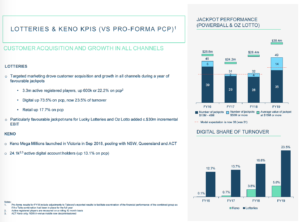The views of bank managers are given too much attention in my view. However, sadly, they are the gatekeepers to business funding. So, they are listened too.
A bank manager recently said to someone why would you buy a newsagency, they are going nowhere. It was a generalisation, not based on any business financials, not considering the transition already achieved in a business. It was ignorant and unhelpful.
Why would you ever listen to a bank manager. They are idiots. Yes, another generalisation, which is equally unhelpful.
The challenge for our channel is that banks have models that are out of date, models based on an assumption that all newsagency businesses are the same – when they are not.
The value of a business flows from its P&L, the business plan and the track record of those seeking the loan. The historic performance of the channel is not relevant today.
I know of newsagents achieving excellent growth. Most would not identify as newsagents but they have enough elements of a newsagency for them to fall under that retail channel category. While the growth is coming from non traditional categories, it is sustaining legacy aspects of the business, keeping services and products represented in regional and rural locations.
This is why the out of date modelling by the banks as represented by their managers is unhelpful for the transformation many of us in our channel are passing through.
Bankers should understand this as they are transforming their model too. That is why the quote at the start of this post is frustrating. It is ignorant and harmful to all in our channel.
If a bank manager says there is no future in a newsagency consider saying: I agree, there is no future in the traditional newsagency you might be thinking of. But, hey, that type of business has not been our model for years. Yeah, we left it behind and embraced something with new categories, new traffic drivers, better margins and lower operating costs. That’s why your banker model of a newsagency does not apply to our business.
Newsagents who are looking to sell their business should lean into this line of thinking. They should be on the front foot, addressing this issue before it is brought to them.
Bankers are frustrating. I remember a time when their opinions were based on what they saw and who they met outside their office. Today, their opinions are fed from out of date business modelling that is certainly not relevant to what may newsagencies are.
Footnote: in the headline I say some because there are some bank managers who think for themselves. They are a rare breed that we should cherish should we be lucky to find them.






